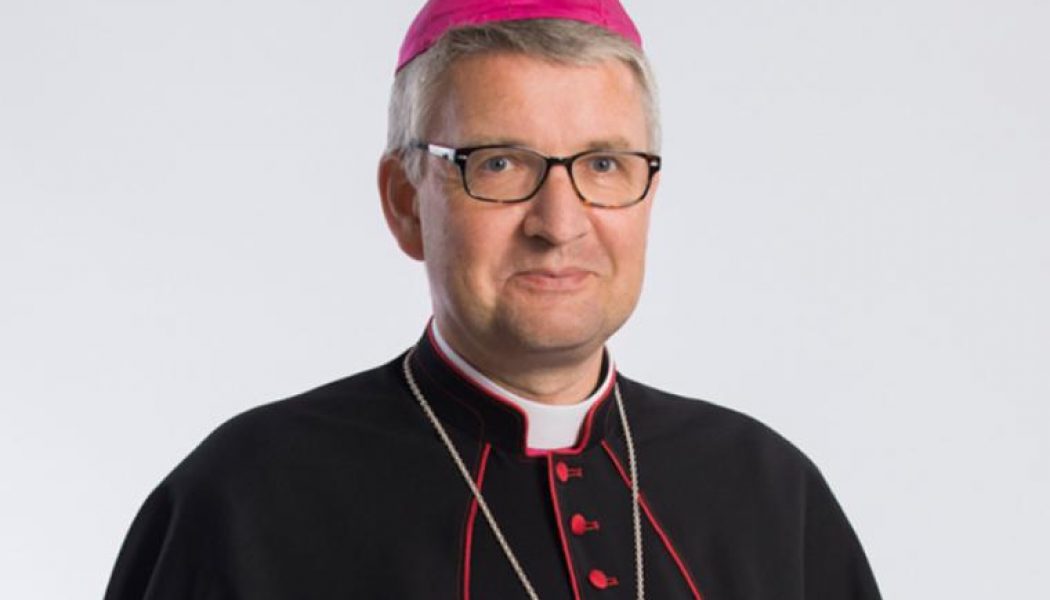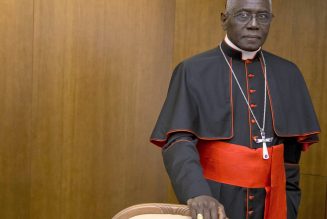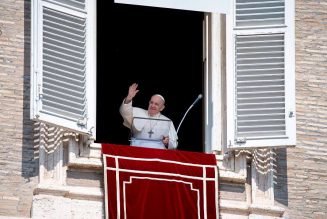
MAINZ, Germany — A German Catholic bishop has publicly defended his support for a book of blessings and rites for homosexual unions.
Bishop Peter Kohlgraf of Mainz also suggested that Catholics with homosexual inclinations cannot all be expected to live chastely and the Church should adopt a pastoral approach that acknowledges this.
“Quite a few people who have homosexual attractions belong to the Church and are truly pious in the best sense of the word,” Bishop Peter Kohlgraf of Mainz wrote in a column for his diocesan newspaper that was also published on the diocese’s website, with the headline “Don’t ignore science,” on Feb. 3.
“As to the demand for chastity: what does it mean from the perspective of people who experience same-sex attraction? I think that few of them would consider this demand as tactful and respectful, because — as the Catechism also knows — this inclination is not self-selected.”
The book of blessings, entitled Paare. Riten. Kirche. (Couples, Rites, Church), is published by Bonifatiusverlag, a publishing house affiliated with the Archdiocese of Paderborn. The book also contains a foreword by Bishop Ludger Schepers, an auxiliary bishop in the Diocese of Essen.
Bishop Kohlgraf confirmed on Feb. 3 that members of his diocesan staff participated in the book’s production and affirmed his support for its publication. He also said that he was soon “made aware” that many different forms of blessings for homosexual couples already existed “and would continue to exist” after he was made bishop of Mainz in 2017.
The bishop is the latest in a series of German prelates publicly calling for changes in the Church’s stance on homosexuality. There have also been similar appeals in neighboring Austria. In May 2020, a book considering how homosexual couples might receive a formal, liturgical blessing of their union in the Catholic Church was published, with one author calling it a response to a request from the liturgical committee of the Austrian bishops’ conference.
German bishops who have so far publicly voiced support for blessing same-sex unions include Cardinal Reinhard Marx of Munich and Freising, Bishop Franz-Josef Bode of Osnabrück, and Bishop Heinrich Timmerervers of Dresden-Meißen.
Bishop Georg Bätzing, the president of the German bishops’ conference, called in December 2020 for changes to the section on homosexuality in the Catechism of the Catholic Church, which was promulgated by Pope John Paul II in 1992 as an authoritative guide to the teachings of the Catholic Church.
According to CNA Deutsch, CNA’s German-language news partner, Bishop Bätzing said that he believed a change to the Catechism was necessary, expressing openness to blessings of homosexual unions, saying “we need solutions for this.”
The Catechism states: “Basing itself on Sacred Scripture, which presents homosexual acts as acts of grave depravity, tradition has always declared that ‘homosexual acts are intrinsically disordered.’ They are contrary to the natural law. They close the sexual act to the gift of life. They do not proceed from a genuine affective and sexual complementarity. Under no circumstances can they be approved.”
It continues: “The number of men and women who have deep-seated homosexual tendencies is not negligible. This inclination, which is objectively disordered, constitutes for most of them a trial. They must be accepted with respect, compassion, and sensitivity. Every sign of unjust discrimination in their regard should be avoided. These persons are called to fulfill God’s will in their lives and, if they are Christians, to unite to the sacrifice of the Lord’s Cross the difficulties they may encounter from their condition.”
It concludes: “Homosexual persons are called to chastity. By the virtues of self-mastery that teach them inner freedom, at times by the support of disinterested friendship, by prayer and sacramental grace, they can and should gradually and resolutely approach Christian perfection.”
CNA Deutsch reported that Bishop Bätzing has repeatedly suggested that the forthcoming assembly in Rome of the Synod of Bishops on the theme of synodality could help to implement changes proposed by the German bishops and the country’s “Synodal Way” — not just in Germany, but throughout the Catholic Church.
The “Synodal Way” is a process bringing together German lay people and bishops to discuss four major topics: the way power is exercised in the Church; sexual morality; the priesthood; and the role of women.
Those demanding a change in Church teaching and practice argue that it is necessary in light of “new scientific evidence” about human sexuality. Synodal Way discussions are informed by the “MHG” study on sexual abuse. CNA Deutsch has reported on criticisms of the study by Catholic experts.
In December 2019, a select group of medical specialists, theologians, and canon lawyers were invited to an event in Berlin, organized by Berlin Archbishop Heiner Koch. Among those who attended were Bishop Franz-Josef Bode of Osnabrück, Bishop Wolfgang Ipolt of Görlitz, Bishop Kohlgraf, and several auxiliary bishops from the bishops’ conference’s faith and family commission.
Following the meeting, the bishops’ conference announced that it was committed to “newly assessing” Church teaching on homosexuality, sexual morality in general, and the sacraments of ordination and marriage.
All participants, according to Cardinal Koch, agreed that since sexual orientation was to be considered unchangeable, “any form of discrimination of persons with a homosexual orientation” was to be rejected, as was “explicitly stressed by Pope Francis” in his 2016 apostolic exhortation “Amoris laetitia.”
Calling for a “solid discussion supported by human sciences and theology,” Cardinal Koch and Bishop Bode also said that “Amoris laetitia” already provided for noticeable “developments” of both Church doctrine and practice in this area.
Bishop Kohlgraf wrote on Feb. 3 that the 2019 meeting still resonated with him. He suggested that since God had clearly allowed for homosexuality in the created order, one should perhaps also accept it being expressed.
“I have a hard time with the idea of a mistake in the creation order,” he wrote. “Or does this show a variation in the diversity of creation that is just there?”
The Central Committee of German Catholics (ZdK), a powerful lay organization steering the Synodal Way together with the German bishops’ conference, published a declaration in 2015 calling for new “liturgical forms, in particular blessings of homosexual partnerships” and “unconditional acceptance” of homosexual unions.
Thomas Sternberg, the co-president of the Synodal Way and the ZdK, reiterated his appeal for blessings of homosexual relationships in an interview with the Neue Osnabrücker Zeitung in September 2018.
In response to the calls for change in Germany, Fr. Matthew Schneider, told CNA by email on Feb. 17 that “the Church historically has been concerned with a wider swath of sexual sin than just homosexuality.”
He said: “Two teachings lead to the logical consequence that no sexual act between two people of the same sex is moral. First, marriage is only one man and one woman. Second, all sex outside marriage is sinful.”
Fr. Schneider, who is writing a doctoral thesis on moral theology and has previously responded to demands by German bishops, added: “Certain things in Church teaching are solid and unchanging while other practices are prudential but must not go against the principles of the infallible teaching.”
Writing for the National Catholic Register in 2019, Fr. Schneider reviewed the history of Church teaching on homosexual acts. He concluded that for “2,000 years, the Church has not wavered in her teaching on the immorality of homosexual acts.”
He wrote: “There has not been a definition in the extraordinary magisterium but the ordinary universal magisterium can be infallible if taught universally with regard to time and place. The immorality of homosexual acts is an infallible teaching of the Church in the ordinary universal magisterium. Thus, the Church cannot change this teaching no matter how much certain priests might wish it changed.”
Fr. Schneider told CNA on Feb. 17: “How we minister to those who are attracted to the same sex to help them live chastity and other aspects of growing in holiness — be it following a Courage or Spiritual Friendship model — is prudential. However, prudential application cannot go so far as to endorse sinful acts of individuals, such as sexual acts outside of legitimate marriage.”
“Likewise, prudence allows blessings of friendships but does not require them. However, blessing friendships should be a friendship that is leading people towards holiness, not a blessing of ‘homosexual friendships’ as a kind substitute for marriage, endorsing — at least implicitly — the immoral sexual acts of the ‘friends.’”
Join Our Telegram Group : Salvation & Prosperity






